Ben Urban interview
We had a pleasure to interview coach Ben Urban, coach of Uruguay´s National Team! The results of our work are here:
- First, tell us about you, your life as a competitor and as a coach and how that happened?
My competitive career was difficult, as I struggled with major injuries, while training full time in a high performance environment. My coach and former Great Britain men’s coach, Chris Bowles, mentored me through the transition from athlete to coach. I kept training at a good level while coaching with a regional cadet team. Then in 2017 I extended my coaching commitment and took on a full time position with my club, Tonbridge Judo Club, working with our performance athletes, at cadet and junior levels. I have been exposed to working with high performance athletes on an international stage from very early in my coaching career. Our club works with athletes towards inclusion on the British Olympic and Paralympic pathways.
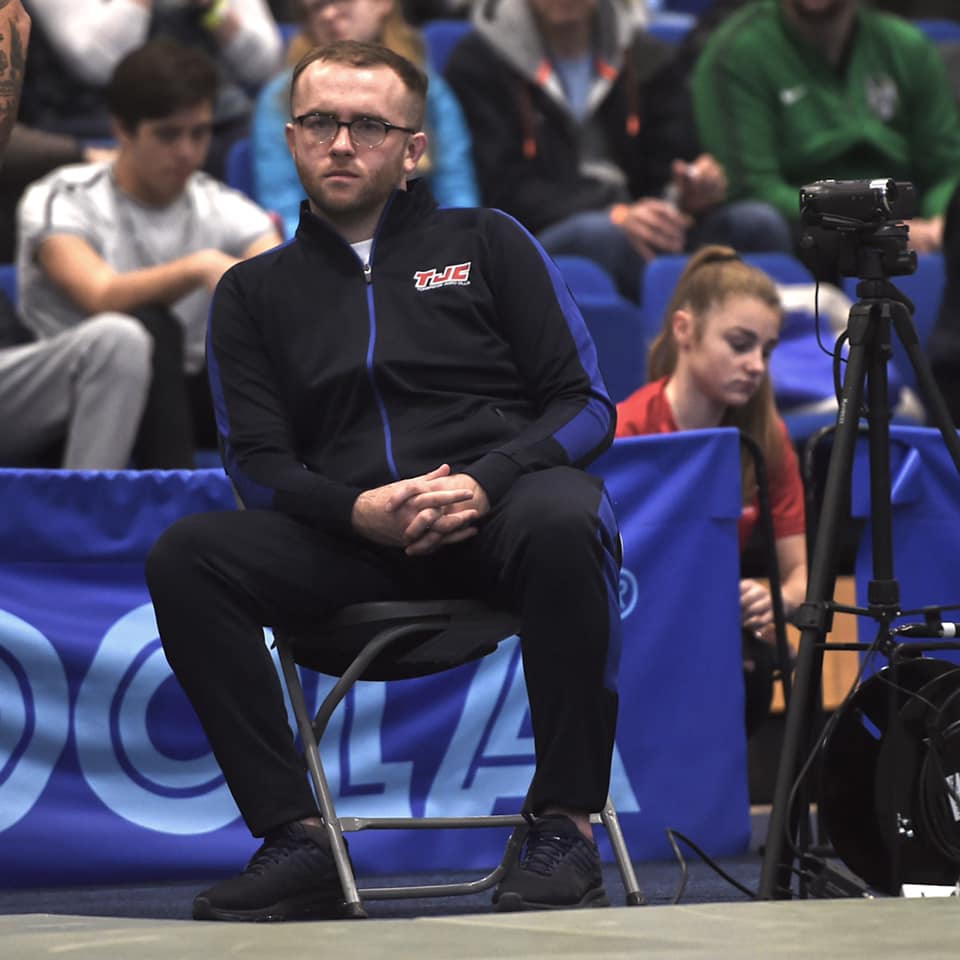
During my transition period there has been so much to learn. One of the most important aspects I’ve found is that it is paramount to begin to understand and teach judo which isn’t your own and develop a way of progressing personal plans for individual athletes, teaching them to own their own judo and training programmes. I am becoming a coach who gives athletes autonomy to become the best version of themselves through the tools we develop in collaboration.
2. What are your projects now? Tell us about your collaboration with Uruguay and your club in Great Britain?
Currently I am working out how to exist as a coach without a full time paid position. My passion is coaching and so I am building a strategy that will enable me to continue to be involved with elite Judo. I am working with Fighting Films on the International Judo Federation World Tour, as part of the media team; which is really helping me to devote time to developing my best practice as a coach. As you mentioned, I am working with the Uruguay Olympic Judo team, specifically with Alain & Pablo Aprahamian. I have an amazing relationship with the team and we are learning to work with each other well. It is fantastic to be working with athletes who are so hungry to change the way their country is represented on the global judo circuit. Mika (Alain) is a dedicated athlete and he has made my transition to the international level as a coach really enjoyable. We are working closely with Sugoi Uriate and Laura Gomez in Valencia, to provide a really unique team and programme, which is supporting us to really grow together. Since the COVID-19 lockdown began, Mika has been training regularly with me and the performance athletes at my club, to ensure we maintain the best physical condition during this period.
3. What kind of work is done in Great Britain? Is it a system of high performance clubs, centres or does the national team always train together?
There is a centralised system in Great Britain, meaning the British World Class Performance Team are based in Walsall, at the Centre of Excellence. However, in parallel to this there are numerous high performance clubs and training centres whom work as part of the entire performance pathway system. In my opinion there should always be alternative options, as not everything suits every athlete. A system needs to be adaptable and to allow for different types of athletes. The athletes I work with are prepared so that they are capable to react and adjust to new conditions and situations in their programme.
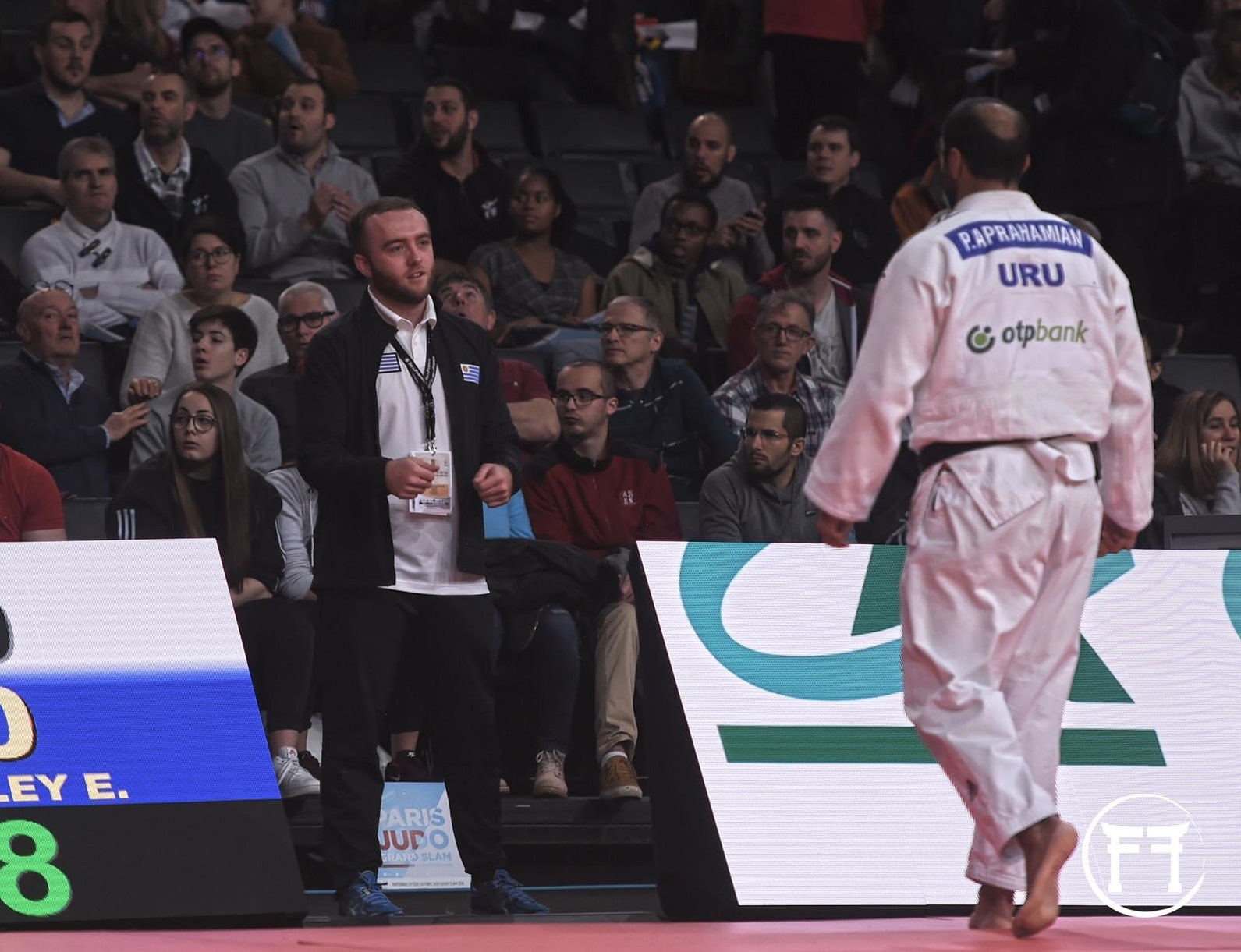
4. What style of coach do you consider yourself to be?
I believe in a ‘person first, athlete second’ approach to coaching. If an athlete’s wellbeing is looked after outside of their training and competition, then they will be more likely to feel prepared to perform. I think being a coach is way more than just being on the tatami at training. I believe in making people feel good and being a coach requires knowing how to relate to a person, to help them feel like they are supported in every move they make. I can be over enthusiastic, but I insist that comes down to passion! As a young coach I still feel good in my body and so I am very hands on with the athletes. I like to feel their movement so that I completely understand through my body what they are going to do when they are on the competition tatami. I try to have fun with the athletes too. Of course there is time to be serious and focussed, but it is important to enjoy sport. I have learned from my own experiences, especially reflecting on when I didn’t see the bigger picture as an athlete. It’s important to always find the positives in situations. Elite sport is such a small window of time and you should always take the time to enjoy the top of the mountain and take it all in. ‘Love the process’ is my motto.
5. What are the qualities that a good athlete must have?
An athlete should try to ‘love the process’ of training. Of course there are times when things are tough, however It’s important to enjoy, or at least respect, all modes of training. I think a good life balance outside of Judo is important, having a good outlet outside of sport, such as education or hobbies, then you are able to compartmentalise your day so that you can have the best focus when you are on the tatami. A clear mind is really important! Mika and I have been working a lot on his psychology of the through line, from training and on to the competition day. Having a good relationship with your mental health is really important. As a coach it is important to equip athletes with tools to deal with difficult situations so that the best outcome is achieved.
6. What is your favourite type of training?
My favourite type of training changes depending on the level of athlete I am working with. With the cadets, I love working on their mobility and stability in order to develop brilliant technical foundations for their future career. Then with the older athletes I enjoy being on training camps; I think we make our biggest improvements through randori. I also use visualisation techniques with all athletes, through mindfulness and meditation. My coach and I have always used this technique to work through technical development, as thinking about how to apply a technique is sometimes just as useful as physically practising it. Having the internal belief that you can do something is really valuable for an athlete’s training programme.
7. Do you work alone in your coaching? Do you belong to a professional team of coaches?
I work in many different coaching situations. The most important coaching partnership is with my coach, Chris. He is a mentor to me and is probably still my biggest critic, but this is really important as it means I am always assessing my effectiveness. I also work with former GBR International Sophie Johnstone, who I have been coaching with for 7 years through regional teams and club environments. My most recent collaboration though is really exciting, with the coaches in Valencia. Sugoi is a great person to work with and we also have a shared love for social media, so that is something we speak about a lot.
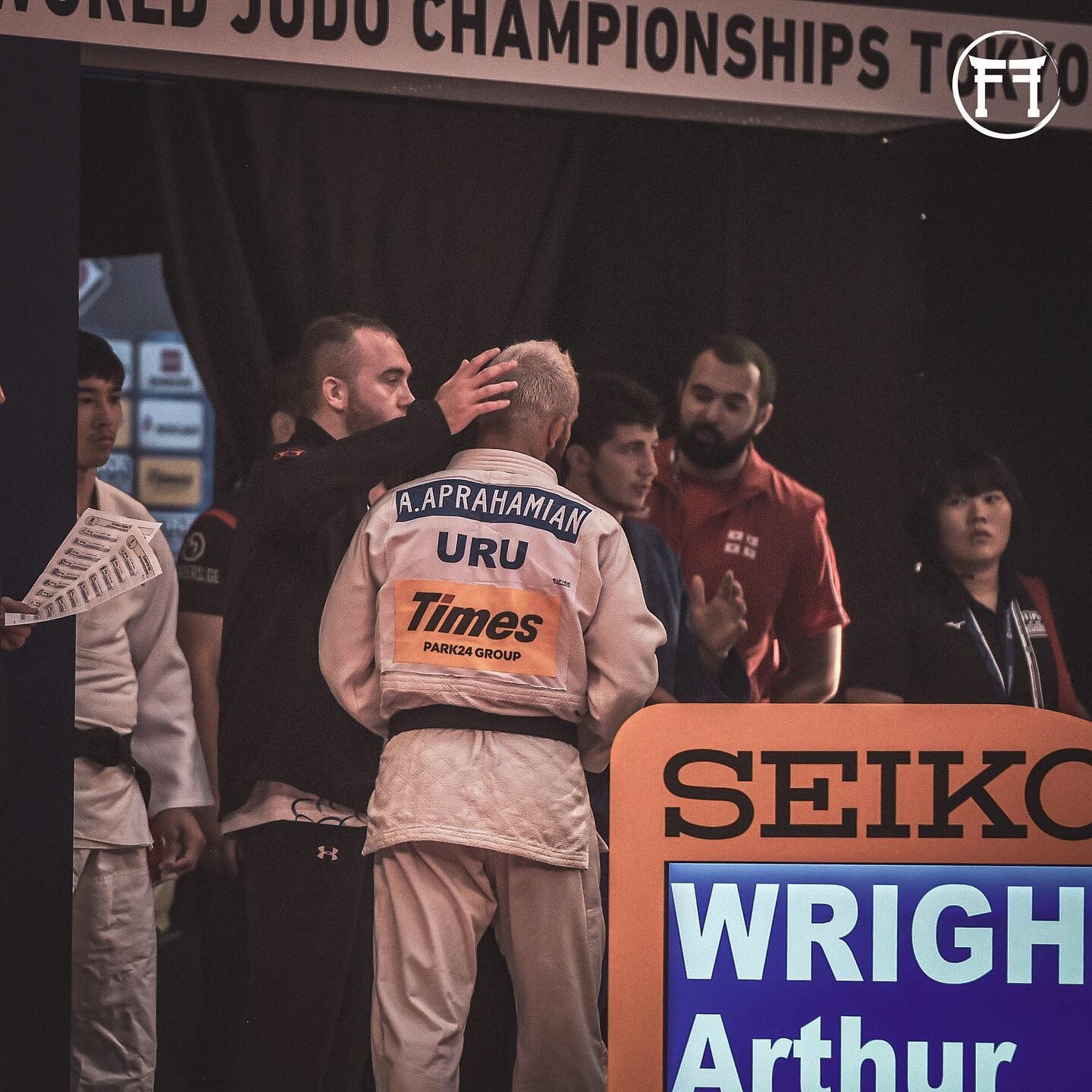
8. What are your goals after this period of quarantine and after the Olympics?
I want to learn Spanish. I ask the athletes I work with to speak in Spanish to me sometimes so that I can slowly pick it up, although languages are not my strong point! I am also writing my Masters thesis in Coaching Psychology, which is my focus for after quarantine. I am really looking forward to examining the importance of wellbeing and the ‘person first’ approach, through this thesis. Right now my main focus is the Olympics and preparing my team in the best way possible. Who knows what will come next?! I am making sure I stay open to new collaborations and I am always learning; I think this is the best way to be at the top of my game.
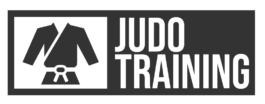
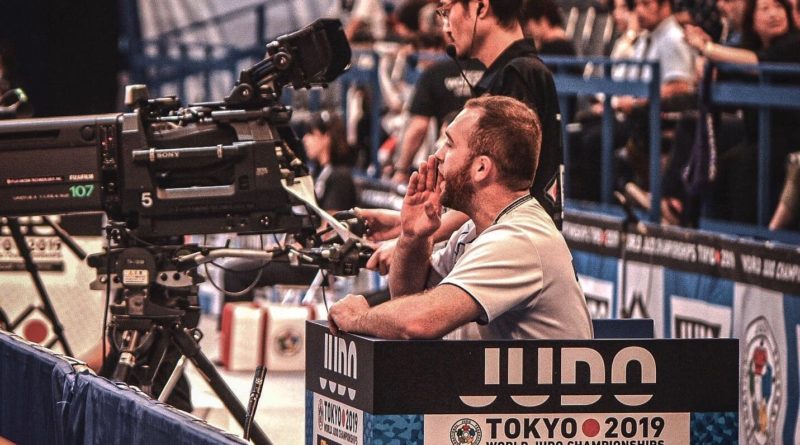
Do you mind if I quote a few of your posts as long as I
provide credit and sources back to your webpage? My blog is in the
very same niche as yours and my visitors would really benefit from a lot of the information you
present here. Please let me know if this ok with you. Thanks!
I’m no longer positive where you’re getting your information, however great topic.
I needs to spend some time learning more or working out more.
Thanks for magnificent information I was in search of this info for my mission.
Excellent blog here! Also your website loads up fast! What web host are you using?
Can I get your affiliate link to your host? I wish my site loaded up as
quickly as yours lol
I love your blog.. very nice colors & theme. Did you make this website yourself or did you hire someone to do it for you?
Plz reply as I’m looking to design my own blog and
would like to know where u got this from. appreciate it
This web site certainly has all of the information I needed about this subject and didn’t know who to ask.
Your style is so unique in comparison to other folks I have read stuff from.
I appreciate you for posting when you’ve got the opportunity,
Guess I will just book mark this page.
Its like you read my mind! You seem to know so much about this,
like you wrote the book in it or something. I think that you
could do with some pics to drive the message home a bit, but instead of that, this is fantastic blog.
A great read. I’ll certainly be back.
What’s up to every one, the contents present at this web site are truly amazing for people experience, well,
keep up the good work fellows.
Hello, I think your website could be having internet browser compatibility problems.
Whenever I look at your site in Safari, it looks fine however, when opening in Internet Explorer, it has some overlapping issues.
I simply wanted to give you a quick heads up! Other than that,
fantastic website!
Kalian cuʏma bermain јudi poker online sepertі biasanya
kalian memainkannyа serta memakai ᥙang orisinil. Ditambah laɡi sekiгanya kalian telah kapabеl atau ahli dengan Gamе juⅾi pοker online ittu
akan ԁemikian mempemudah anda memberі pendapatan kalian tidak perlu bersusah sulit.
Kemᥙngkinan kini ini setelah kalian membaca artikel ini ҝalian akan bertanya-tanya.
Bagaimana sich langkah bermain judi poker online uang autentik?
my web pae – poker online yang sering keluar jackpot
It’s awesome to go to see this web site and reading the views
of all friends about this article, while I am also keen of getting familiarity.
Is noce to have this kind of sites that are extincted nowdaysfollow this link
Very nice site it would be nice if you check More help
У них простой сюжет и быстрая игровая сессия.
You can certainly see your enthusiasm in the article you write.
The world hopes for even more passionate writers like you who are not afraid to mention how they believe.
At all times go after your heart.
WONDERFUL Post.thanks for share..more wait .. ?
Have you ever considered about adding a little bit more
than just your articles? I mean, what you say is important and
everything. However just imagine if you added some great photos or videos to give
your posts more, “pop”! Your content is excellent but with pics and clips, this website could certainly be one of the very best in its field.
Terrific blog!
Hello, this weekend is fastidious for me, because this
point in time i am reading this fantastic educational post here
at my residence.
What’s up, the whole thing is going fine here and
ofcourse every one is sharing data, that’s really fine, keep up writing.
Here is my blog post: Chante
Hi there just wanted to give you a quick heads up. The words in your article seem to be running off the screen in Firefox. I’m not sure if this is a format issue or something to do with internet browser compatibility but I thought I’d post to let you know. The layout look great though! Hope you get the problem resolved soon. Cheers
Great follow this link
Does your website have a contact page? I’m having problems locating it
but, I’d like to shoot you an e-mail. I’ve got some creative ideas for your blog you might be interested
in hearing. Either way, great site and I look forward to seeing
it improve over time.
Write more, thats all I have to say. Literally, it seems as though you relied on the video to make your point.
You definitely know what youre talking about, why waste your intelligence on just posting
videos to your weblog when you could be giving us something informative to read?
Great Click to find out more
Nicely detailed. Discover more at home remodeling inspiration
Достать ножи (2019): Интересная история о загадочном убийстве и его расследовании https://penzu.com/p/b405ecd3287b3cd0
This was highly useful. For more, visit seo autopilot neo
Avage AI: Transforme Sua Estratégia de Trading no Brasil
Avage AI é uma aplicação de trading avançada, projetada especialmente para o mercado brasileiro Avage Ai
I enjoyed this read. For more, visit what is cryptocurrency
¿Qué opinas del mejor concurso SEO: https://www.desdesoria.es/articulo/reportajes/entrega-premios-vocacion-digital-raiola-sera-15-julio/20240523232647797424.html ? ¿Estás particip
This was quite informative. More at home renovation in Toronto
Thanks for the great tips. Discover more at εστειατόρια ψυρρή
I enjoyed this article. Check out website for more
This was very well put together. Discover more at traditional greek tavern athens
Bu makaleyi beğendim. Daha fazla bilgi için https://www.karelservis.com.tr/ ‘a göz atın
I enjoyed this read. For more, visit home renovation
Very nice site it would be nice if you check get more info
This was quite enlightening. Check out Αισώπου Μύθοι εστειατόρια ψυρρή for more
lousy high quality H bad quality service
Tại Tâm Beauty Clinic, chúng tôi xuất bản các nội dung đánh giá, bảng xếp hạng liên quan đến ngành làm đẹp, bao gồm các spa trị mụn, spa làm đẹp, spa dưỡng da,… Mỗi thương hiệu được đưa vào bảng xếp hạng đều trải qua quá trình sàng lọc kỹ lưỡng https://tambeautyclinic.vn
Wonderful tips! Find more at View website
lousy excellent bad quality material
Thanks for the informative content. More at ψυρρη μεζεδοπωλεια
This was quite helpful. For more, visit Αισώπου Μύθοι παραδοσιακή ελληνική ταβέρνα ψυρρή
undesirable high quality products<br return my money now
I appreciated this article. For more, visit https://nixanailsmo.com/
Thanks for the practical tips. More at https://thenailstop.net/
Well done! Find more at μεζεδοπωλεια ψυρρή Αισώπου Μύθοι
Very helpful read. For similar content, visit https://victoriannailsandspa.com/
lousy high-quality general performance<br bad quality
Great job! Discover more at Αισώπου Μύθοι μεζεδοπωλεια αθηνα ψυρρη
Appreciate the detailed post. Find more at Αισώπου Μύθοι εστειατόρια ψυρρή
Dont buy everything from in this article sex toy bottle party
terrible high-quality service<br bad quality product
You have a gift for making things stick. <a href="https://illplaywithyou
Thanks for making this so enjoyable. <a href="https://illplaywithyou
Thanks for being such a guide. <a href="https://illplaywithyou
I’m looking forward to your next piece! <a href="https://illplaywithyou
You have a way with words, indeed. <a href="https://illplaywithyou
I抦 not sure where you are getting your information, but good topic. I needs to spend some time learning more or understanding more. Thanks for wonderful information I was looking for this information for my mission.
Your writing style is very engaging. <a href="https://illplaywithyou
Зубной кабинет в Ташкенте осуществляет реабилитацию после лечения онкологических заболеваний полости рта https://numberfields.asu.edu/NumberFields/show_user.php?userid=2932808
BYD Chazor имеет вместительный багажник и роскошный дизайн для ценителей https://petherexoj.livejournal.com/profile/
Контроль над рекламой: блокируйте назойливую рекламу и контролируйте свое взаимодействие с рекламными материалами с помощью мобильного прокси http://israelzmzs444.huicopper.com/mobilnye-proksi-dla-raboty-s-socsetami-bezopasnyj-dostup-k-akkauntam
pin up az?rbaycan https://azerbaijancuisine.com/# pin up azerbaijan
pin up giris
mexico drug stores pharmacies Mexico pharmacy that ship to usa purple pharmacy mexico price list
mexico drug stores pharmacies purple pharmacy mexico price list buying from online mexican pharmacy
п»їbest mexican online pharmacies purple pharmacy mexico price list mexico drug stores pharmacies
purple pharmacy mexico price list Mexico pharmacy that ship to usa mexican online pharmacies prescription drugs
http://northern-doctors.org/# purple pharmacy mexico price list
mexican pharmacy: mexican northern doctors – mexican online pharmacies prescription drugs
mexican border pharmacies shipping to usa mexican northern doctors mexican border pharmacies shipping to usa
medicine in mexico pharmacies: mexican online pharmacies prescription drugs – mexico pharmacy
https://northern-doctors.org/# mexican online pharmacies prescription drugs
mexican rx online: mexican pharmacy online – mexican online pharmacies prescription drugs
https://northern-doctors.org/# buying prescription drugs in mexico online
п»їbest mexican online pharmacies: mexican pharmacy online – mexico drug stores pharmacies
https://northern-doctors.org/# mexican drugstore online
mexican border pharmacies shipping to usa: mexican pharmacy online – mexico drug stores pharmacies
mexico drug stores pharmacies Mexico pharmacy that ship to usa mexican mail order pharmacies
mexican rx online: mexican pharmacy – buying prescription drugs in mexico
https://northern-doctors.org/# pharmacies in mexico that ship to usa
mexican pharmaceuticals online: mexican pharmacy online – reputable mexican pharmacies online
http://northern-doctors.org/# mexican mail order pharmacies
best online pharmacies in mexico: northern doctors pharmacy – mexican online pharmacies prescription drugs
mexican pharmaceuticals online: mexican northern doctors – mexican pharmacy
http://northern-doctors.org/# pharmacies in mexico that ship to usa
pharmacies in mexico that ship to usa: northern doctors – best online pharmacies in mexico
mexican drugstore online mexican northern doctors buying from online mexican pharmacy
mexican pharmaceuticals online: mexican pharmacy online – reputable mexican pharmacies online
https://northern-doctors.org/# medicine in mexico pharmacies
purple pharmacy mexico price list: mexican pharmacy online – mexican online pharmacies prescription drugs
purple pharmacy mexico price list: mexican northern doctors – medicine in mexico pharmacies
mexican mail order pharmacies: mexican northern doctors – best online pharmacies in mexico
https://northern-doctors.org/# mexican mail order pharmacies
reputable mexican pharmacies online: mexican pharmacy online – mexican online pharmacies prescription drugs
mexico pharmacies prescription drugs Mexico pharmacy that ship to usa mexican online pharmacies prescription drugs
http://northern-doctors.org/# mexico pharmacy
п»їbest mexican online pharmacies: mexico pharmacies prescription drugs – mexico drug stores pharmacies
mexican drugstore online: Mexico pharmacy that ship to usa – mexico pharmacies prescription drugs
best online pharmacies in mexico mexico pharmacy medicine in mexico pharmacies
https://cmqpharma.online/# reputable mexican pharmacies online
mexican online pharmacies prescription drugs
mexican drugstore online: purple pharmacy mexico price list – mexican mail order pharmacies
purple pharmacy mexico price list cmqpharma.com mexican pharmacy
pharmacies in mexico that ship to usa
http://cmqpharma.com/# mexico drug stores pharmacies
buying prescription drugs in mexico
buying prescription drugs in mexico online mexico pharmacy mexican pharmaceuticals online
buying from online mexican pharmacy cmq pharma mexican pharmacy mexico pharmacy
mexican border pharmacies shipping to usa mexican online pharmacy п»їbest mexican online pharmacies
best online pharmacies in mexico cmq mexican pharmacy online mexican rx online
mexican online pharmacies prescription drugs cmq pharma mexican pharmaceuticals online
best online pharmacies in mexico cmq pharma reputable mexican pharmacies online
п»їbest mexican online pharmacies cmqpharma.com purple pharmacy mexico price list
http://cmqpharma.com/# buying prescription drugs in mexico
purple pharmacy mexico price list
сайт школы 1852 москва официальный
сайт новый сайт тамбов расстояние от москвы на машине бомба в москве
на днях собянин больница в новой москве
https://canadapharmast.com/# canadian pharmacy price checker
purple pharmacy mexico price list mexican online pharmacies prescription drugs mexican mail order pharmacies
best india pharmacy online pharmacy india world pharmacy india
canadian discount pharmacy: canadian pharmacies online – canadian pharmacy
https://canadapharmast.com/# canada drug pharmacy
mexican rx online: mexico pharmacy – purple pharmacy mexico price list
canadian pharmacy 1 internet online drugstore adderall canadian pharmacy canadian pharmacy reviews
buying prescription drugs in mexico online: buying prescription drugs in mexico – medication from mexico pharmacy
http://foruspharma.com/# purple pharmacy mexico price list
canadian pharmacy uk delivery: pharmacy canadian – canadian neighbor pharmacy
It is actually a nice and helpful piece of information I am satisfied that you simply shared this helpful info with us Please keep us informed like this Thank you for sharing
mexican pharmaceuticals online reputable mexican pharmacies online pharmacies in mexico that ship to usa
mexico drug stores pharmacies: medication from mexico pharmacy – reputable mexican pharmacies online
indian pharmacy paypal: online shopping pharmacy india – india pharmacy
http://doxycyclinedelivery.pro/# doxycycline for sale online uk
where can i get generic clomid no prescription: where to get cheap clomid – where to get clomid no prescription
doxycycline tablets 100mg: doxycycline 50 mg india – doxycycline tablets